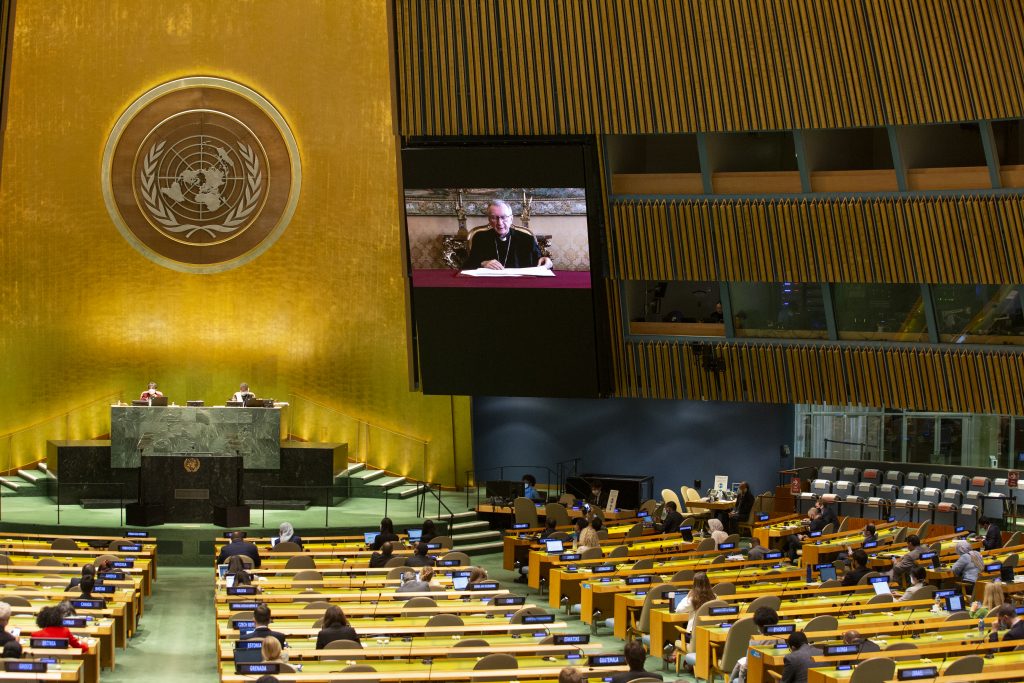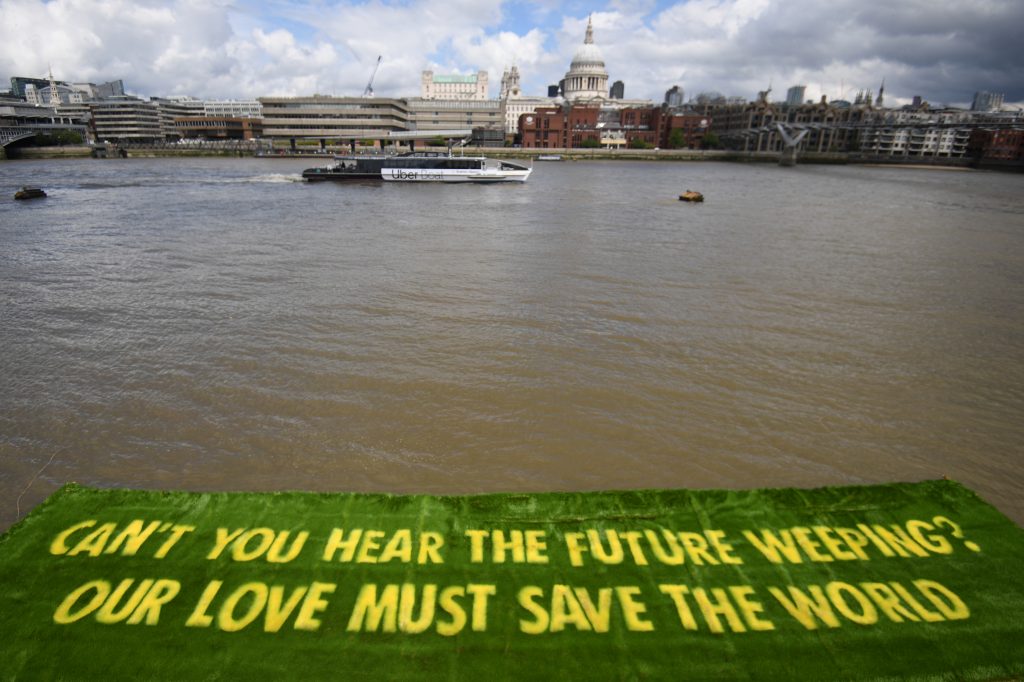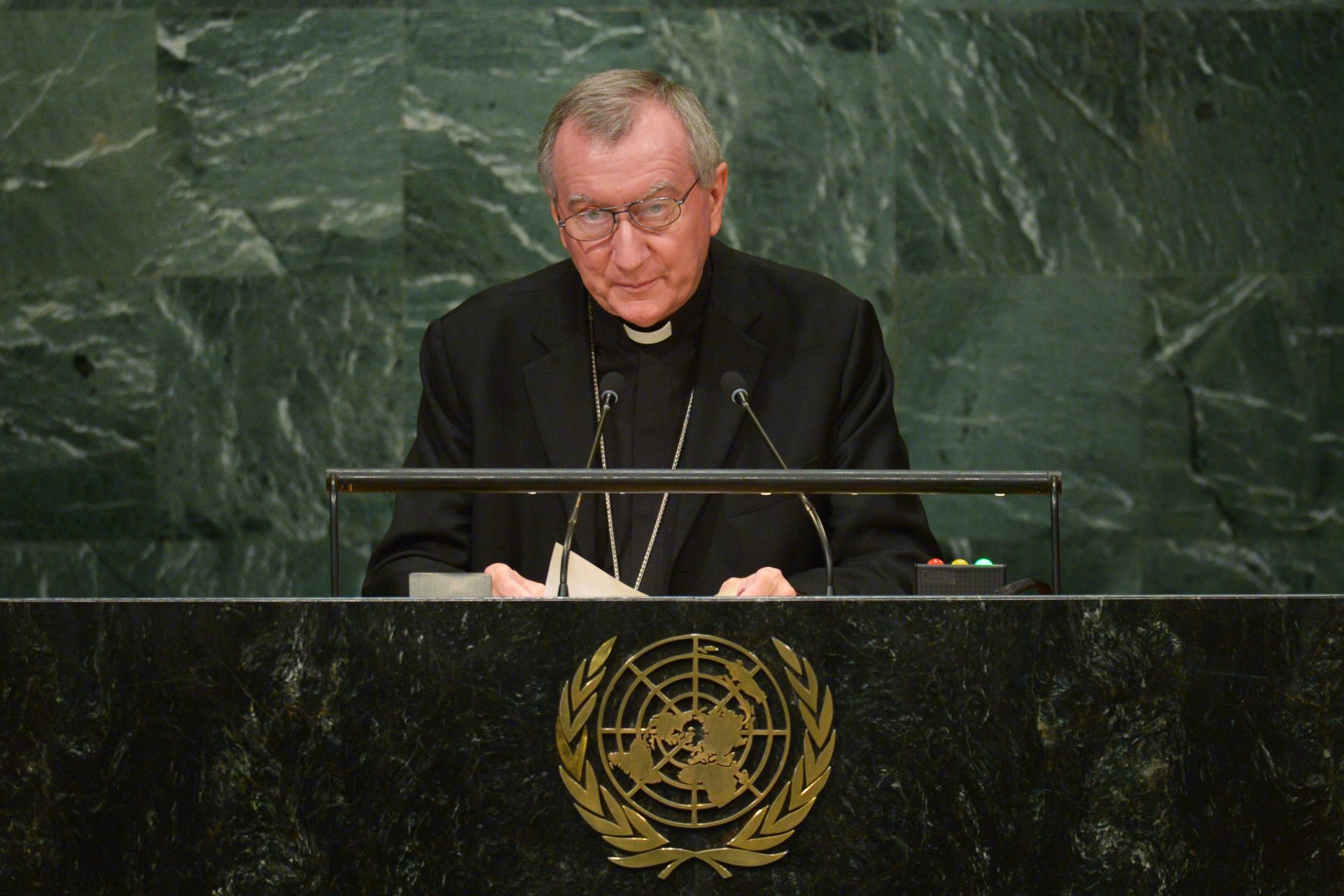The failure to provide health care access, testing, and vaccines during the COVID-19 pandemic deserves global scrutiny, Cardinal Pietro Parolin told the United Nations on Friday.
His remarks addressed development, supporting the marginalized, and ensuring the UN adheres to its original mandate and does not empower interest groups that seek to advance disputed or misleading visions of human rights.
“Even today many have no access to testing, basic care, or vaccines or even to the energy infrastructure that would make such care possible,” Cardinal Parolin, the Holy See’s Secretary of State, said Sept. 25 to the UN General Assembly.
He called for “a renewed examination of how health care systems have largely been overwhelmed by the pandemic and left so many without sufficient care or any care at all.”
There have been 4.7 million confirmed deaths in the coronavirus pandemic. Both its spread and efforts to limit infections have disrupted many countries.
For Cardinal Parolin, efforts to strengthen resilience mean examining the “fragility and shortfalls of our economic systems, which have left many behind as a result of the severe economic downturn and made the poor even more vulnerable.
Cardinal Parolin stressed the importance of hope in continuing to preserve peace and other achievements while working to make progress.
“Hope keeps us motivated when problems and disagreements seem unsolvable,” he said. “It facilitates forgiveness. It keeps us conscious that through reconciliation there can be a better future. It fosters resilience and inspires us to put in hard work even when we may not be able to see results achieved in our lifetime.”
“For Christians, hope is the most divine gift that can exist in the heart of mankind,” he added. “To help the world build resilience through hope, the United Nations must lead by example, and the states, entities, and personnel that comprise the organization all have a key role to play in helping set that example. The Holy See is vigorously committed to playing its part.”
Cardinal Parolin discussed reviving humanitarian development efforts and serving refugees, migrants, the poor, and others who are marginalized or oppressed. He also warned against efforts to misuse UN bodies and human rights language in ways that mislead.

The cardinal voiced the Holy See’s concern that some groups seek to turn all UN groups into “bodies that focus on a limited number of disputed issues.” He urged world leaders to “promote and safeguard the mandates of UN entities and fora.”
“The Holy See views with concern the push of some to break down the helpful division of labor among committees, commissions, meetings and processes, turning all into bodies that focus on a limited number of disputed issues. Furthermore, the principle of consensus must be safeguarded,” he said. “One common step in the right direction is preferable to many steps in different directions.”
Parolin was not specific about what these “disputed issues” might be. However, legal abortion, abortion funding, and LGBT causes recast in the language of human rights have been controversial topics at the UN.
Though the Universal Declaration on Human Rights recognizes the family as the “natural and fundamental group unit of society,” Parolin said the family is sometimes “misrepresented.”
He criticized “novel interpretations of existing human rights, separated from their underlying universal values.” These “new rights” in many cases contradict foundational values and are “imposed despite the absence of any objective foundation or international consensus.”
“The Holy See believes that while depriving human rights of their original universal dimension, these new partial interpretations sadly become the ideological benchmark of spurious ‘progress’ and another ground for polarization and division,” Parolin continued. “Sadly, we are facing this in the constant pursuit of introducing controversial new agendas that drive UN processes contrary to the bodies’ given mandates.”
“In an age in which many universal human rights continue to be violated with impunity, these attempts in fact confuse, divert from implementing the human rights conventions, and impede the attention and energy that the promotion and protection of fundamental human rights and dignity deserve,” he said.
He encouraged the UN to renew itself through returning to its core principles and living up to its true aims, “rather than becoming a tool of the powerful.”
Parolin worried about the pandemic’s negative effects on development programs and sustainable development goals. Sustainable development must incorporate the poor, including “their gifts and creativity as agents of their own integral development.”

Discussing climate change, Parolin said the UN Climate Change Conference, to be held in Glasgow Oct. 31-Nov. 12, is an important opportunity for the international community to “to “commit anew to the protection of our common home.” He lamented “decades of inaction” and noted many recent extreme weather events. However, he praised technological advances and the decreasing costs of “clean energy,” saying they make it easier for governments and individuals to make environmentally conscious choices.
The cardinal warned against the dangers of weapons of mass destruction. Nuclear weapons are possessed “under the guise of nuclear deterrence” but the threat of their use “creates an ethos of fear based on mutual annihilation, and poisons relationships between peoples, obstructs dialogue, and undermines hope.” He called for progress towards nuclear disarmament, non-proliferation and prohibition.
Among the most serious concerns of Pope Francis, the cardinal reported, are the “crisis of human relationships” and “a way of life dominated by selfishness and by the culture of waste” that tramples human dignity.
“Our societies today are the theater of many injustices where human beings are maltreated, exploited, ignored, killed, or left to languish in humanitarian emergencies,” said Parolin. “Women and girls, persons from different indigenous, racial, ethnic, and linguistic backgrounds experience violence and oppression or are reduced to second-class citizens.”
Humanitarian law is treated “as a recommendation rather than an obligation,” he lamented.
“Refugees, migrants and internally displaced persons are increasingly left in limbo or even left to drown, unwelcome and unable to find a new home to raise their family in dignity, peace and security,” he continued. “Religious believers endure harassment, persecution, death and even genocide on account of their faith. The elderly and persons with disabilities are cast aside, especially when they are frail or considered burdensome. Innocent children are deemed problematic, discarded by society even before they are born or have the chance to bring their own, unique contribution into the world.”
Cardinal Parolin invoked Pope Francis’ 2020 encyclical Fratelli tutti, which said difficulties must be approached with “renewed hope” based on the “abundant seeds of goodness in our human family.”
“Many are the signs of hope, even in our weary societies,” said Cardinal Parolin. “To be builders of peace in our societies means to find these seeds and shoots of fraternity.”







